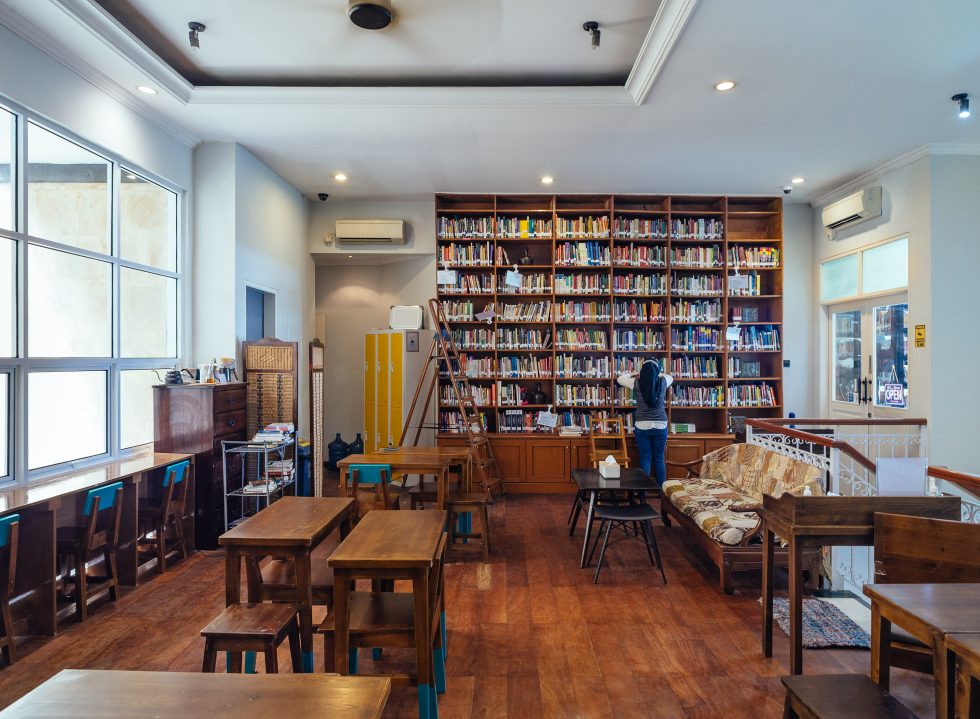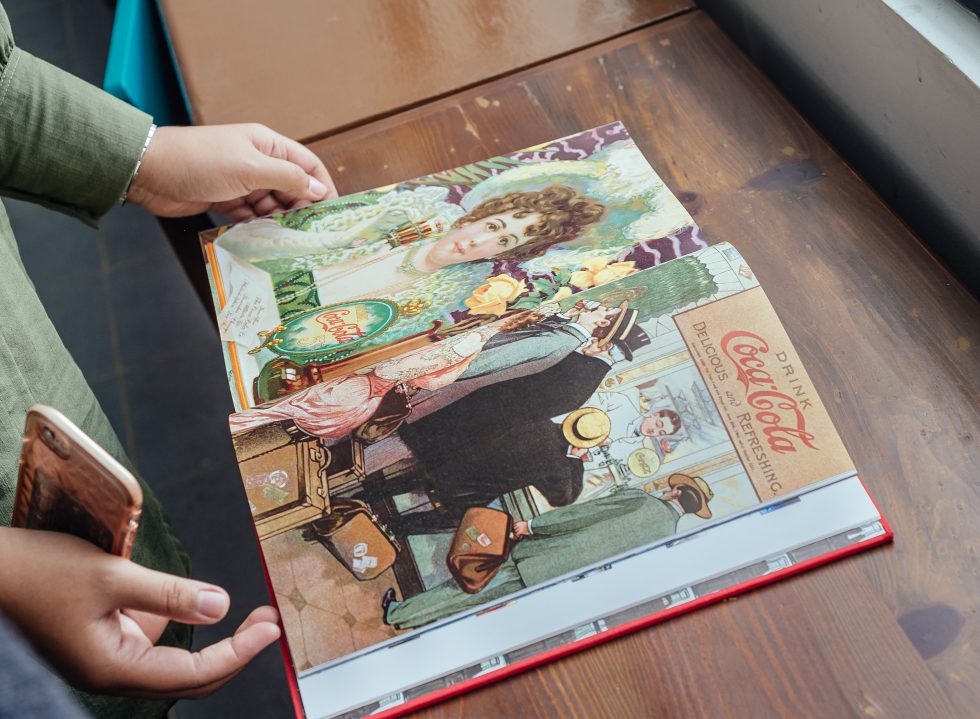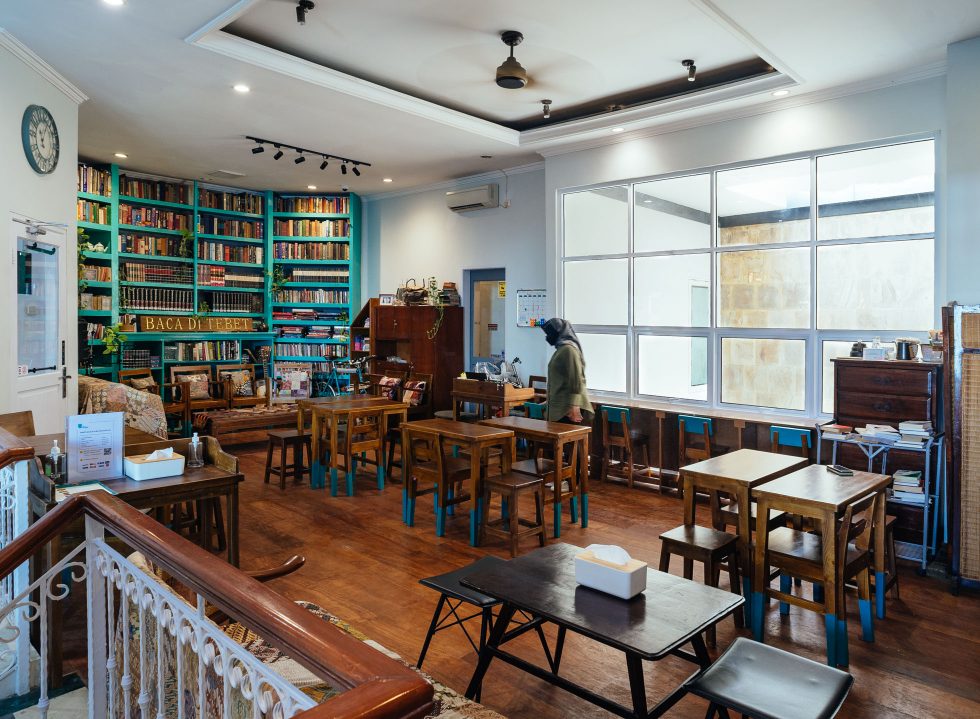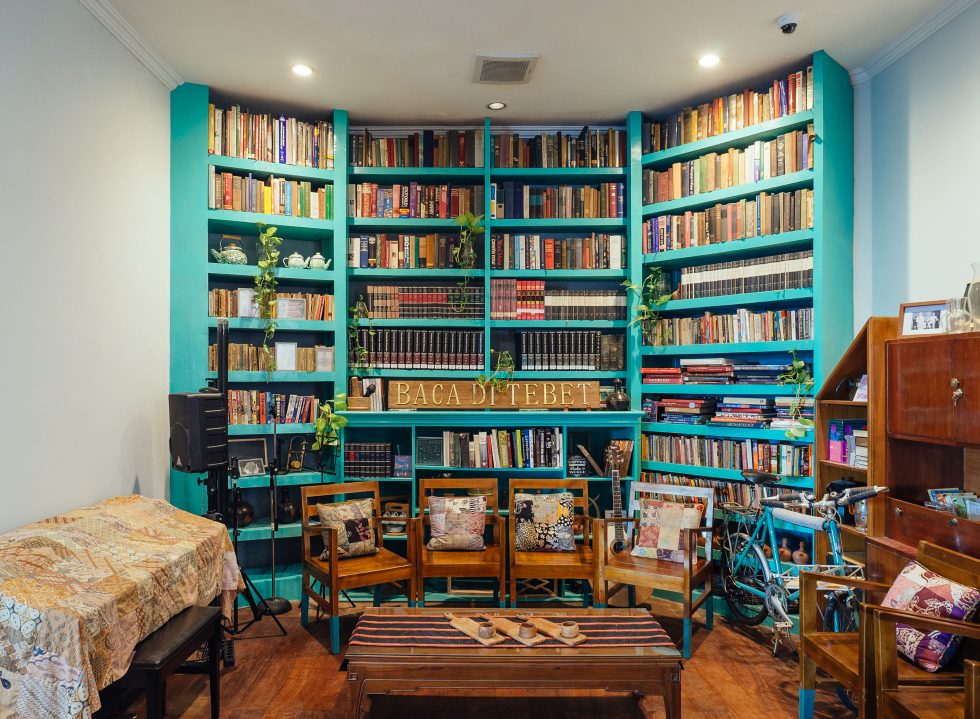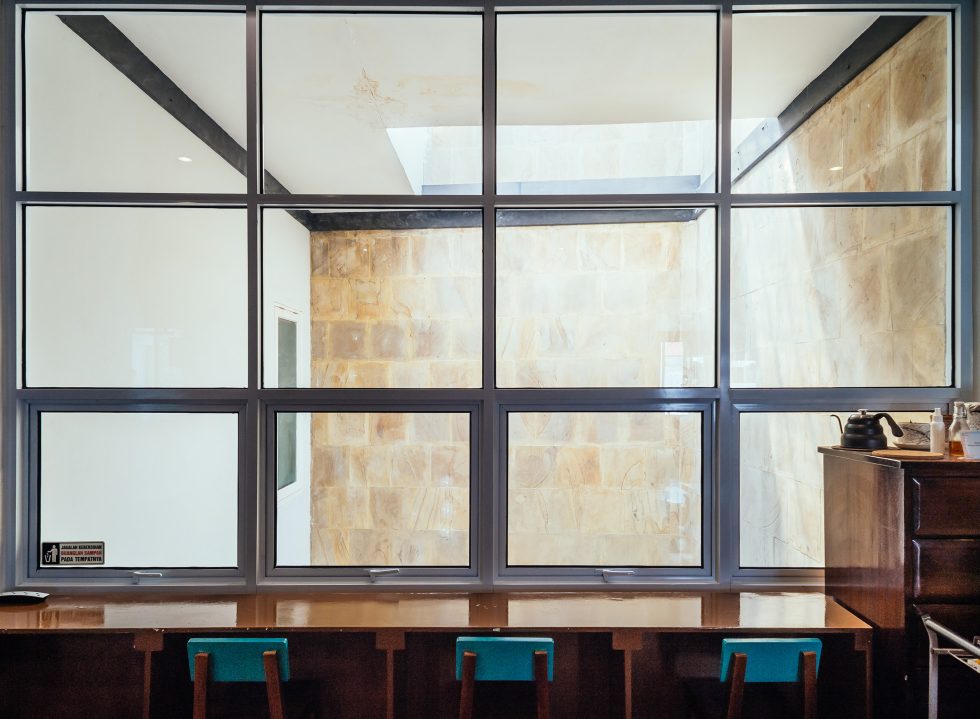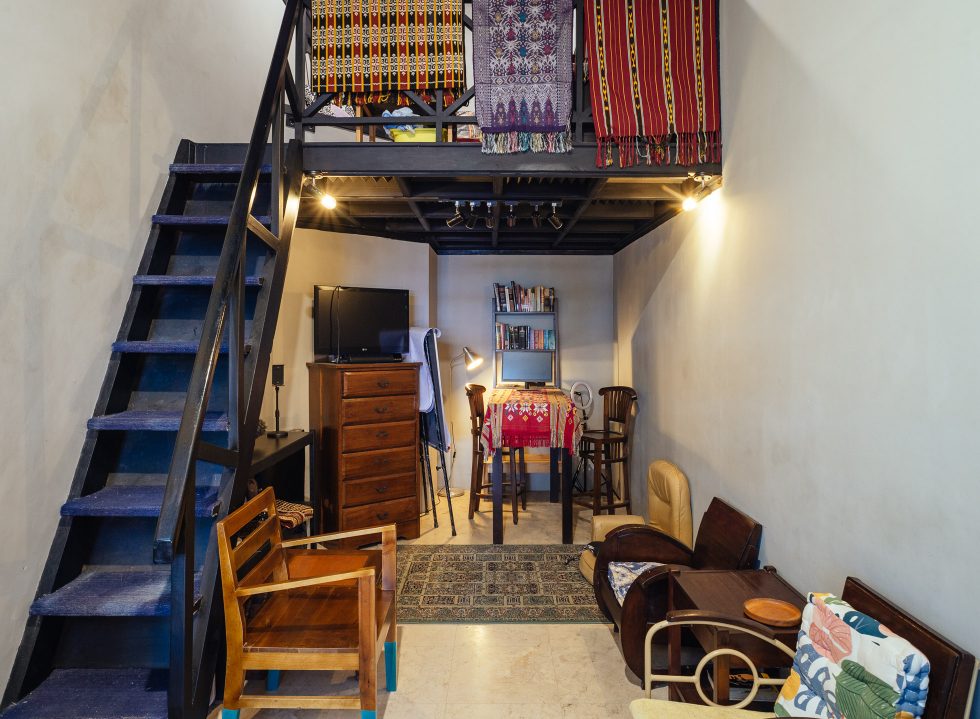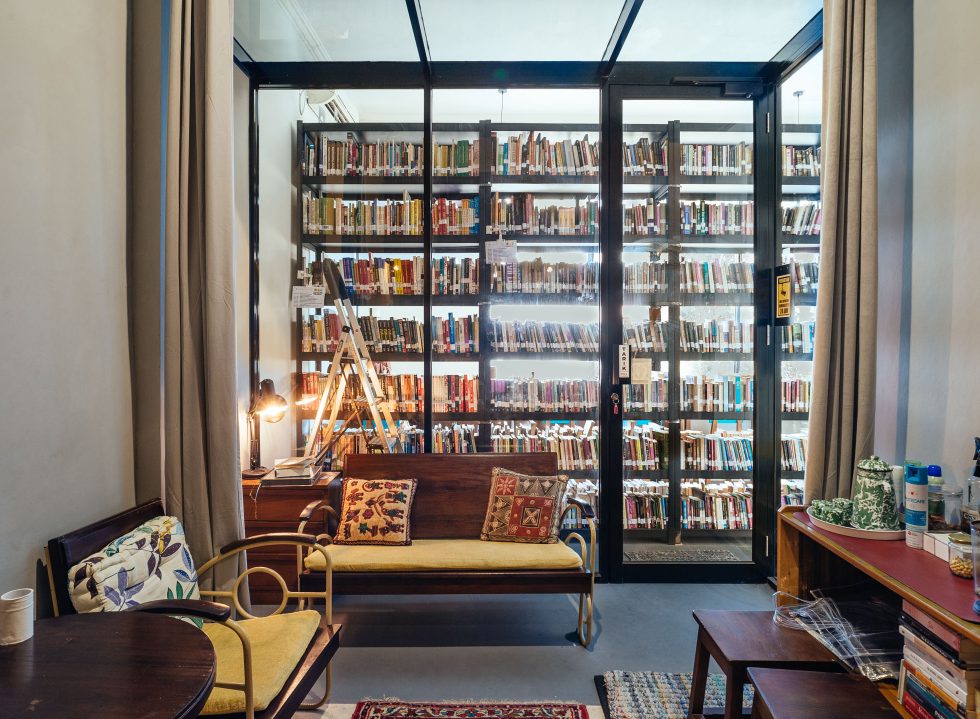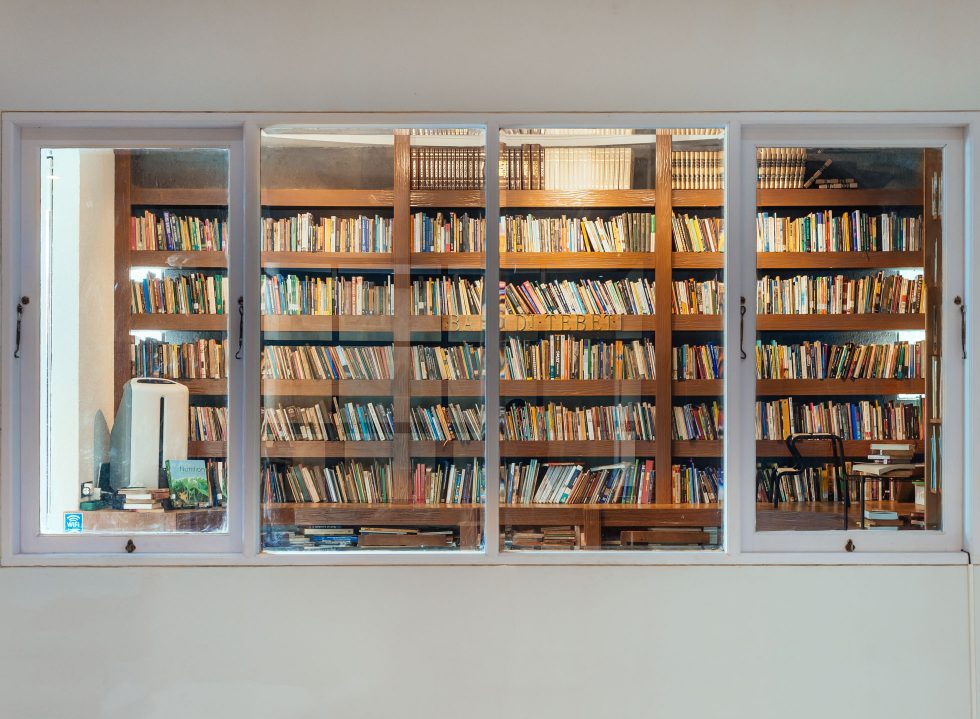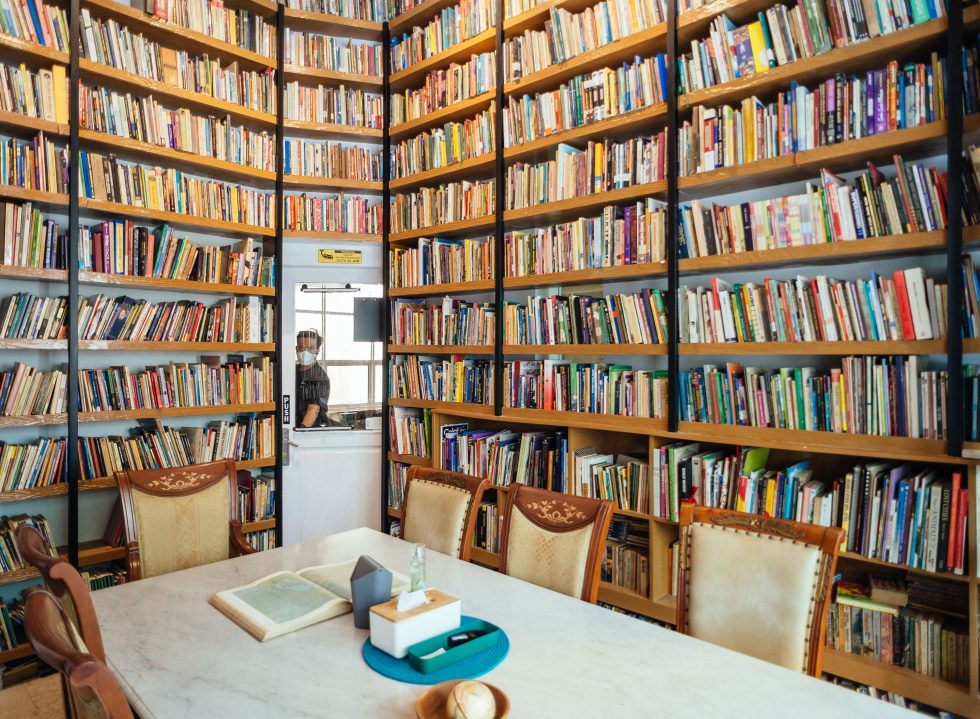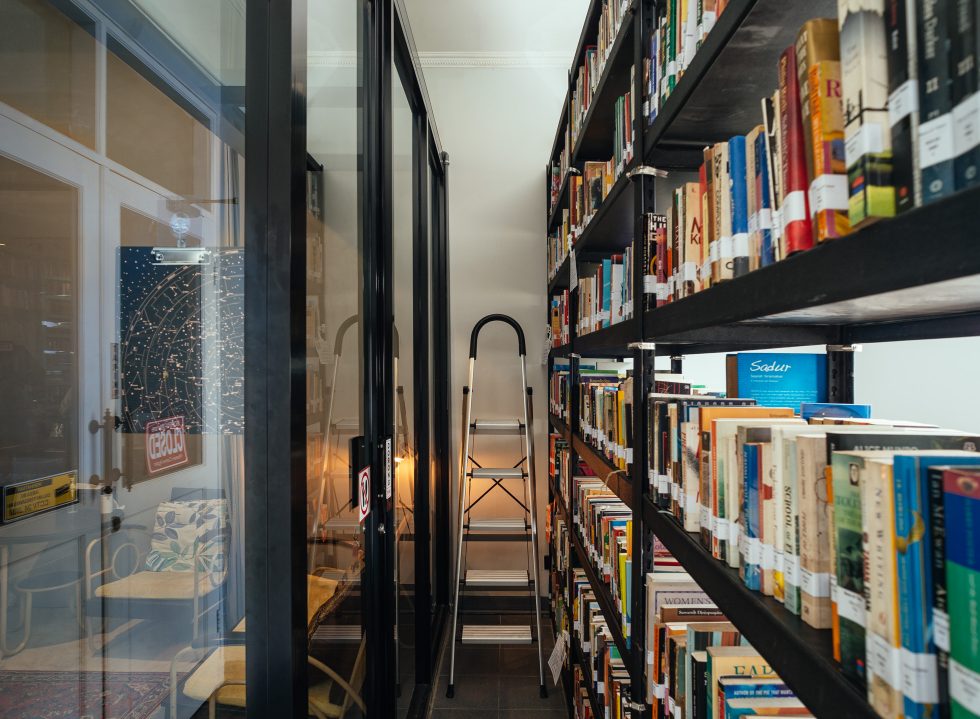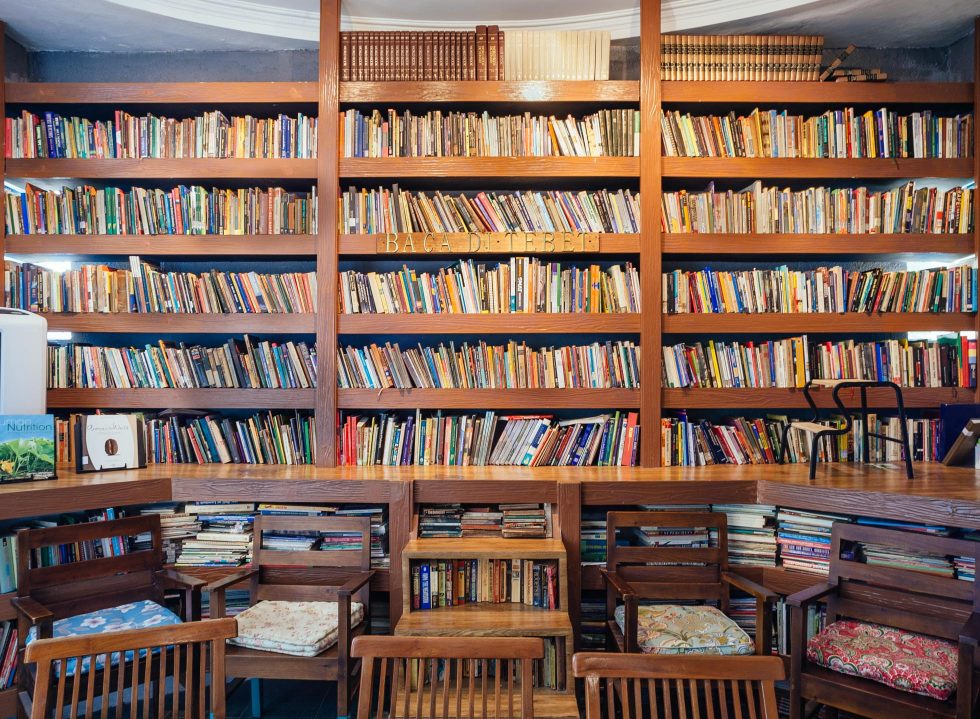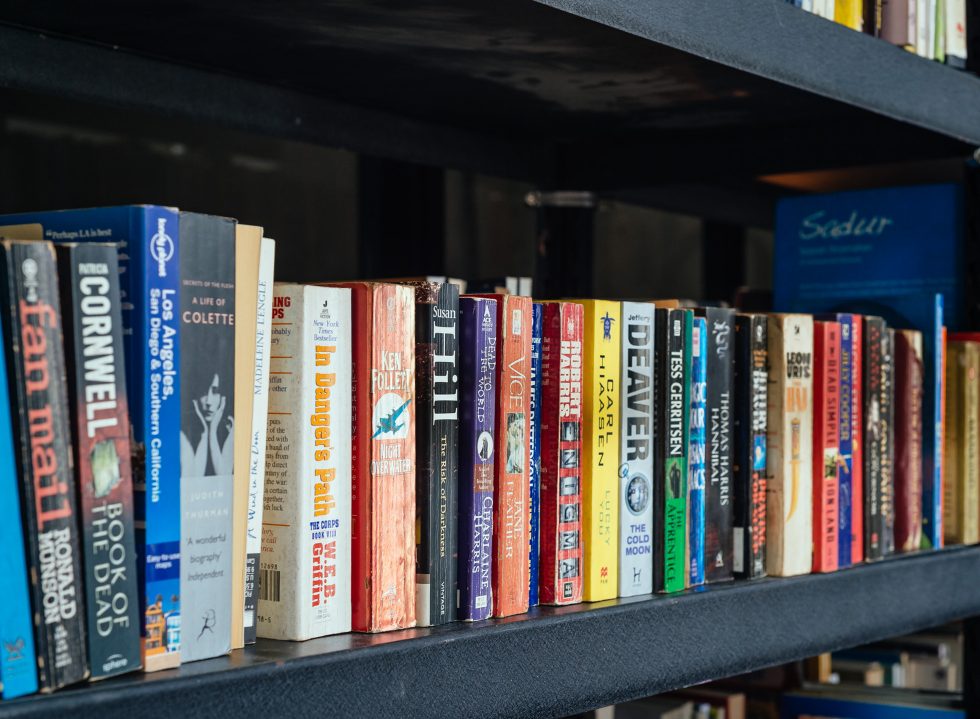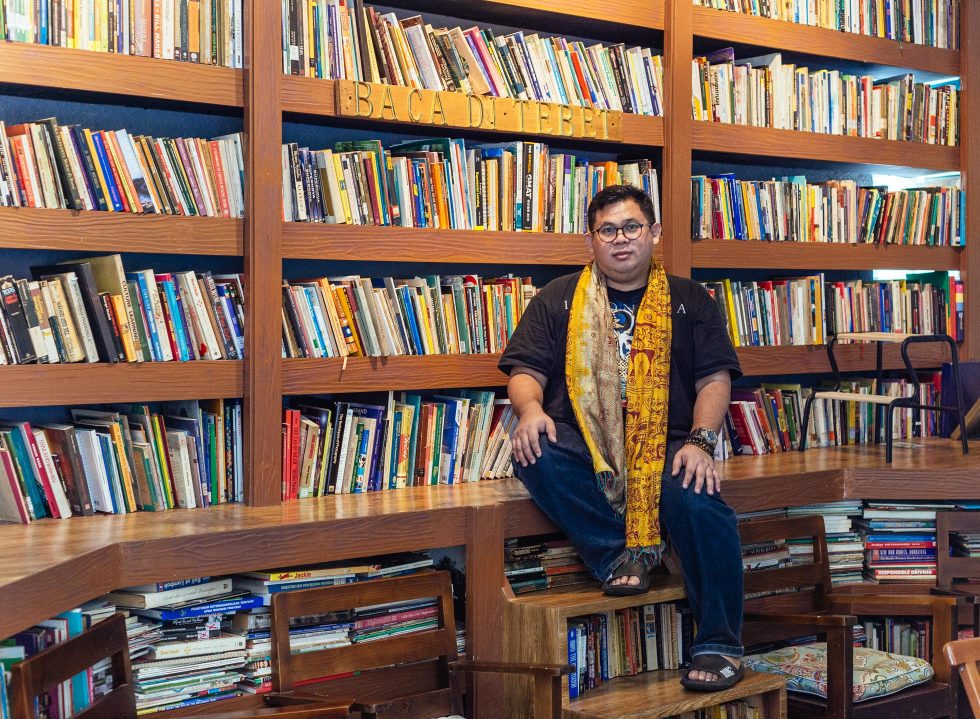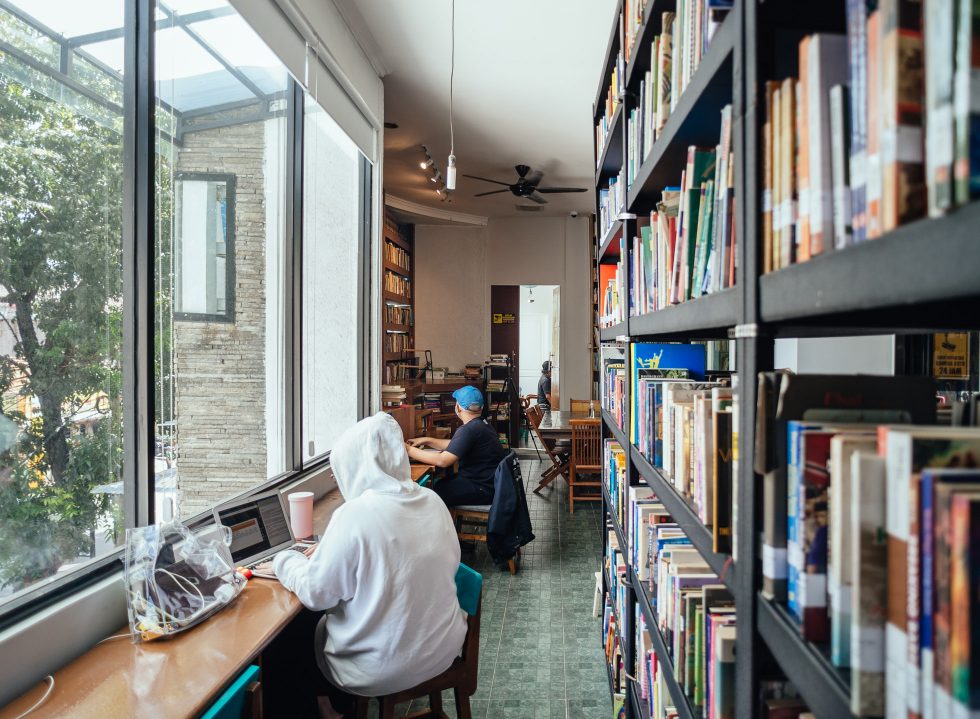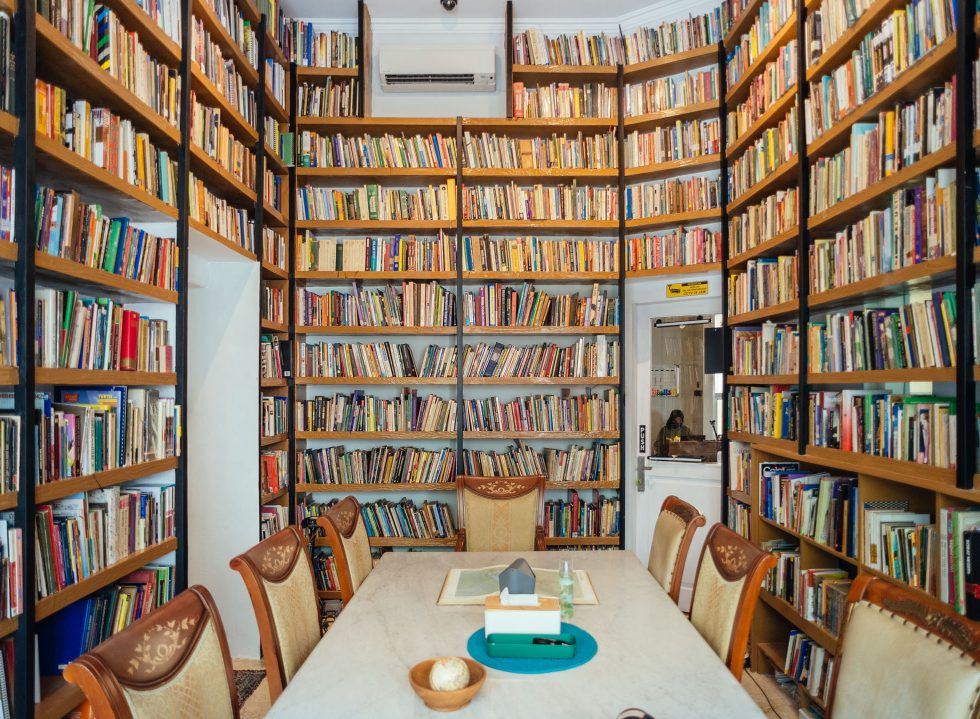Amongst the 20,000 plus novels, magazines, and coffee table books covering the walls and shelves of Baca Di Tebet (BDT), a community-run library located in a two-story house on Tebet Barat Dalam, only 4000 of them have been catalogued.
There are encyclopaedias. Fictions from the likes of Margaret Atwood. A set of classic literature reprints from Everyman’s Library to books on graphic design, filmmaking and culinary. The rest are still in progress—some will eventually be part of the library’s fixed collection, while some others will probably end up being donated elsewhere. At the same time, books have continued to come in through donations from community members, reading enthusiasts or just kind strangers who want to avoid hoarding.
Founders Wien Muldian and Kanti W. Janis, who share a similar lifelong dream of opening a library, are okay with this arrangement. In fact, they welcome the sight and habit of people, even as young as elementary school kids, giving away their used books as a way to contribute to society. After all, Baca Di Tebet is not about the collection of books they have, but how people are going to utilise what they read.
“More than merely a space to read books, [BDT] is intended to be a place where ideas and conversations happen,” said Wien, a senior figure in the Indonesian literary world who is currently acting as the head of Perkumpulan Literasi Indonesia. His personal collection also accounts for almost 90 per cent of the library’s books.
“Reading isn’t an individual thing anymore, it’s a collective act. It’s like how we’re talking right now, sharing knowledge, skills and any interactions that come out of it.”
Formerly Kanti’s family residence, there is an ordinariness of a home setting to Baca di Tebet that is located on the second floor. Though compact in space, it still charms with the relaxed appeal of a home-library set-up, from the books displayed en masse on the floor-to-ceiling wooden bookshelves, and the library ladder for one to pick up that intriguing title amongst the lot, to the tables where people can read and study while overlooking the street through the large windows.
Designated rooms at Baca di Tebet also call for all kinds of meetings to take place: they’ve welcomed university lecturers to host study discussions at Ruang Pikir (thinking room); industry figures — from authors and producers to musicians — for events and workshops at Ruang Roy B.B Janis (named after Kanti’s late father, Roy B.B Janis, a well-known politician); as well as streams of college students, writers and readers quietly filling their day with books at Ruang Baca (reading room).
Additionally, the place is home to the Indonesian Writers Inc, a literary agency and writers management that Wien and Kanti established. For Kanti, an author and a lawyer, these are the kind of interactions, and in a way a safe space, they had in mind for Baca di Tebet all along.
“We always believe that the main function at [BDT] is not to deposit books, but to fetch and develop ideas and to be a place to learn from each other,” said Kanti. “Books are a media to store and preserve ideas, kind of like a time machine, but people are the most essential component here.”
The entrance fee to Baca di Tebet is 35,000 IDR/person. For information on membership, visit their website here.
